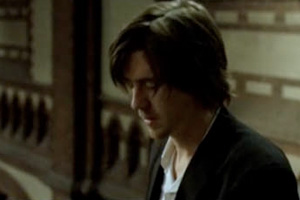
"In one of the most exciting rediscoveries of the year, BAM’s retrospective of Finnish auteur Teuvo Tulio offers four masterpieces of melodrama, all made between 1938 and 1946, whose cinematic grandeur will be nothing less than magnificent on the big screen. With a painter’s eye, Tulio can turn an idyllic country landscape into an earthly heaven or a frenzied nightmare — and often his films fluctuate between those two extremes."









